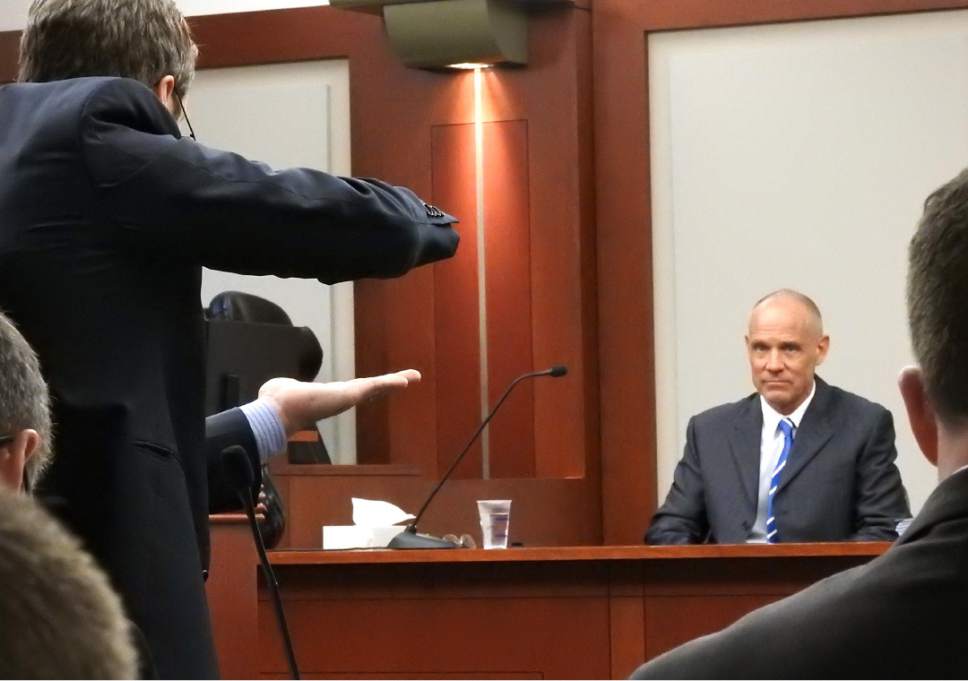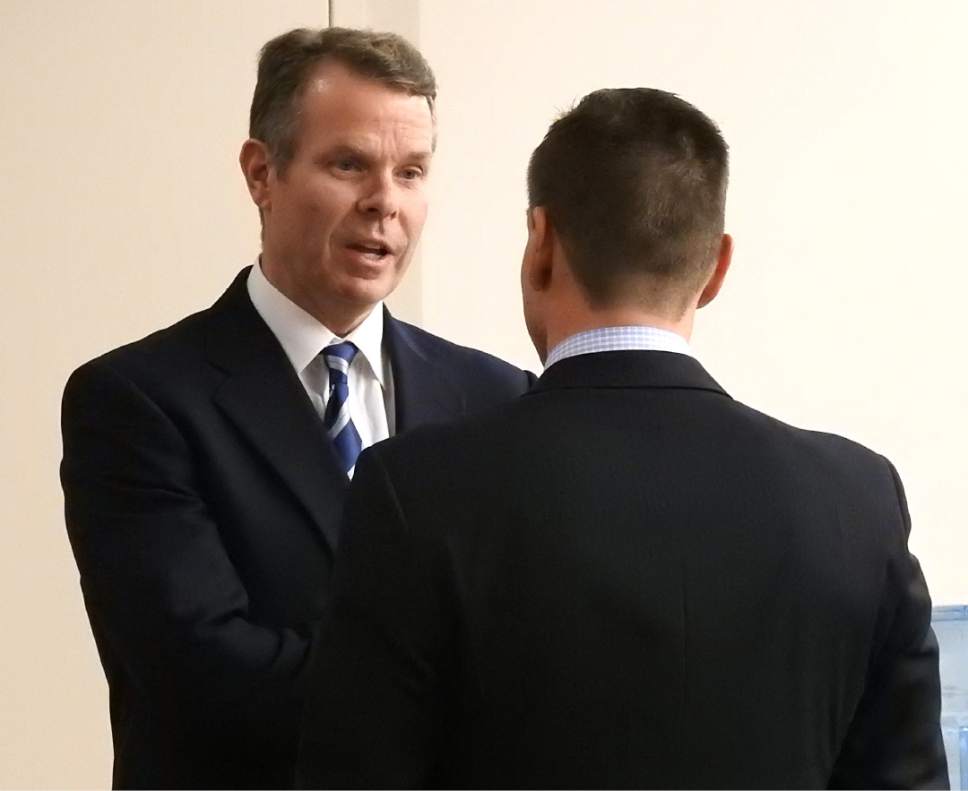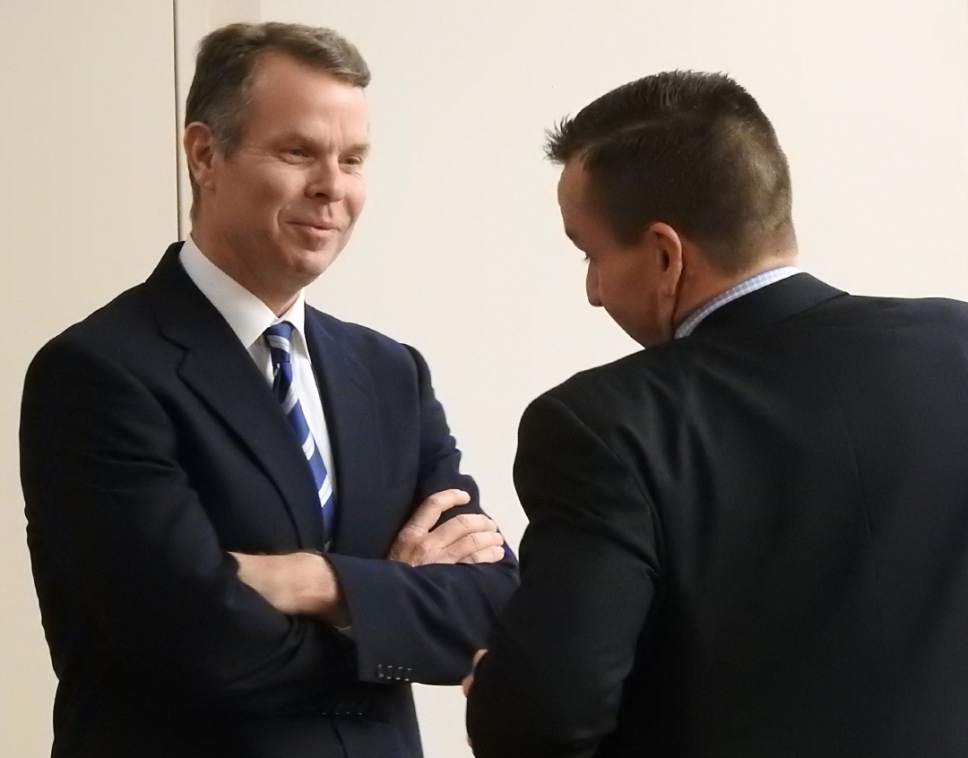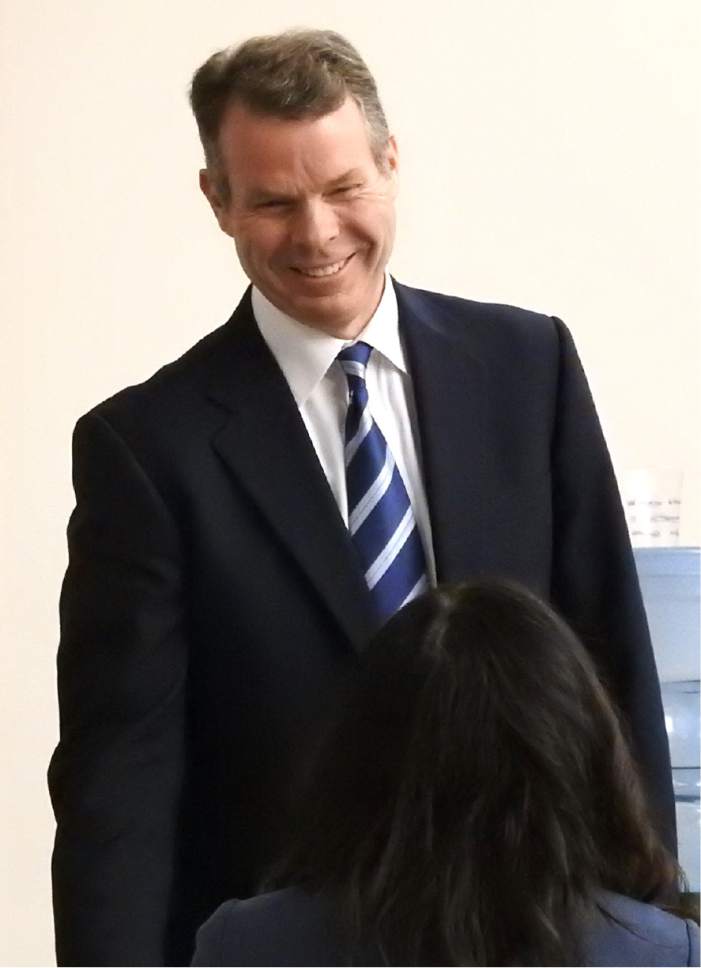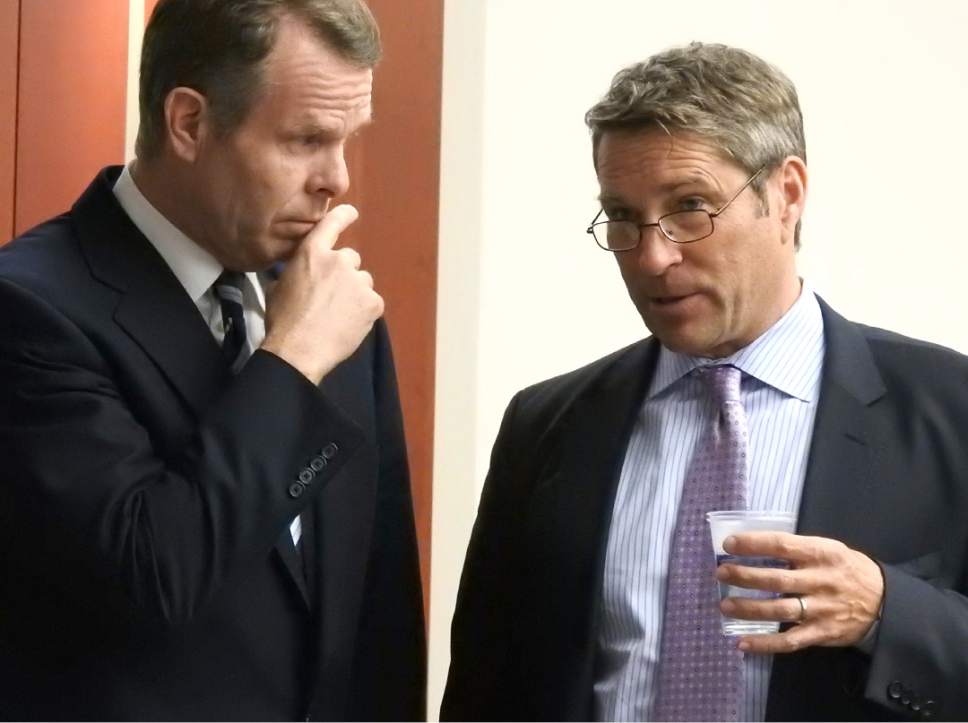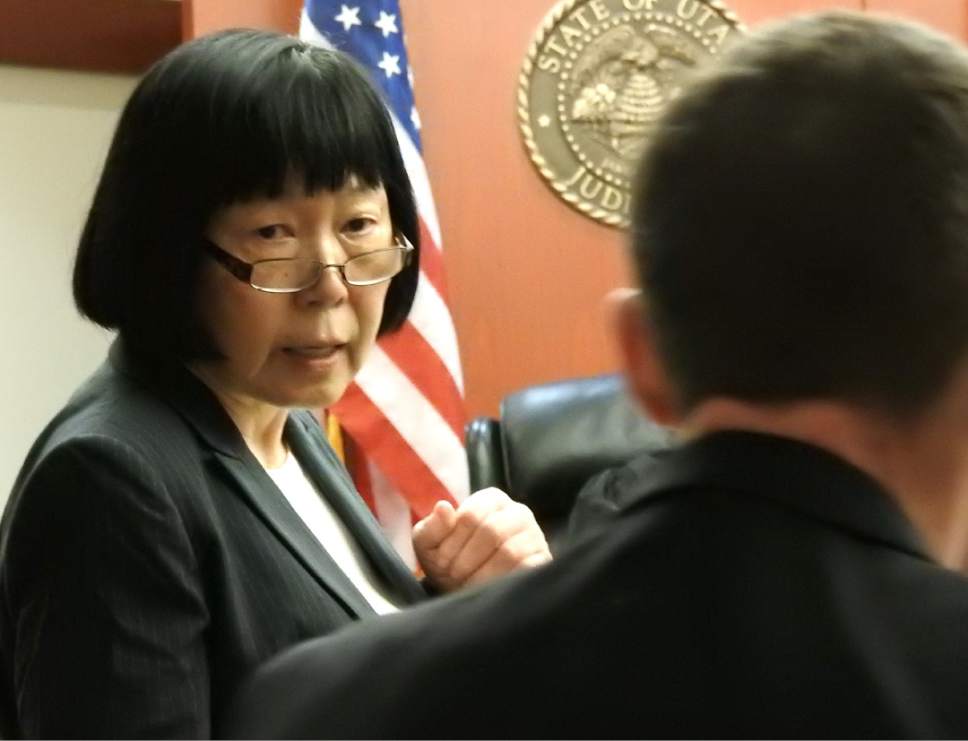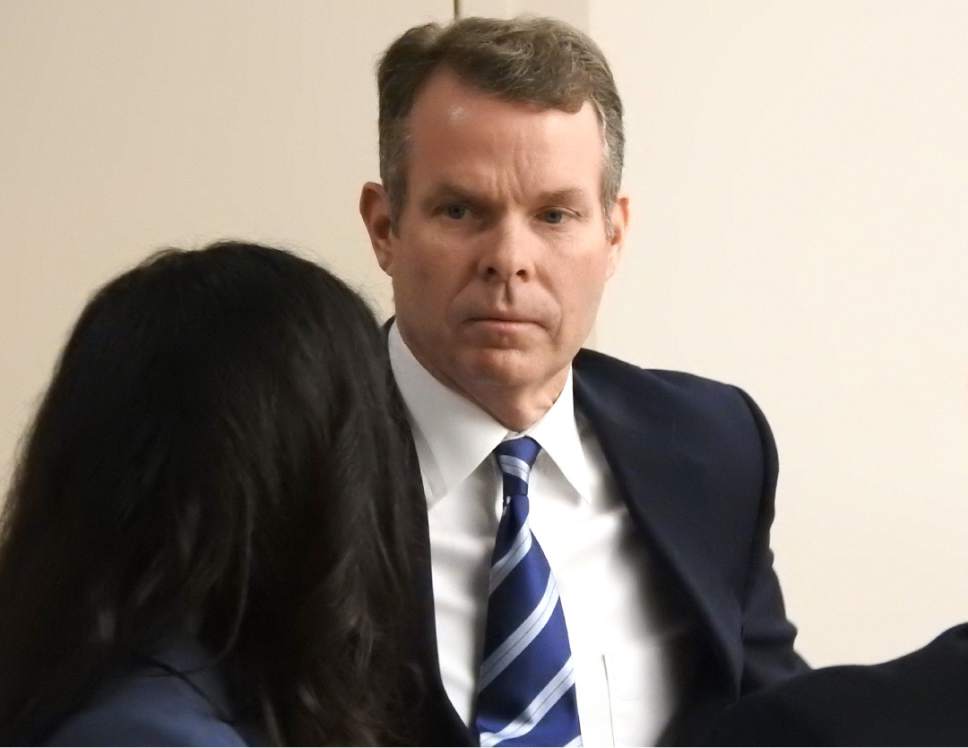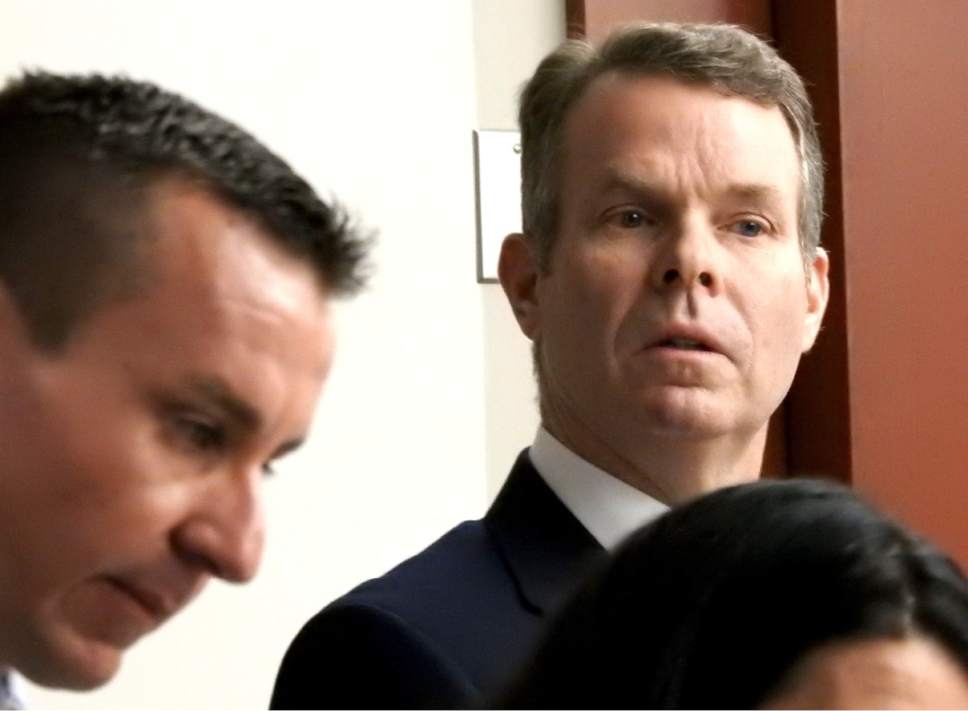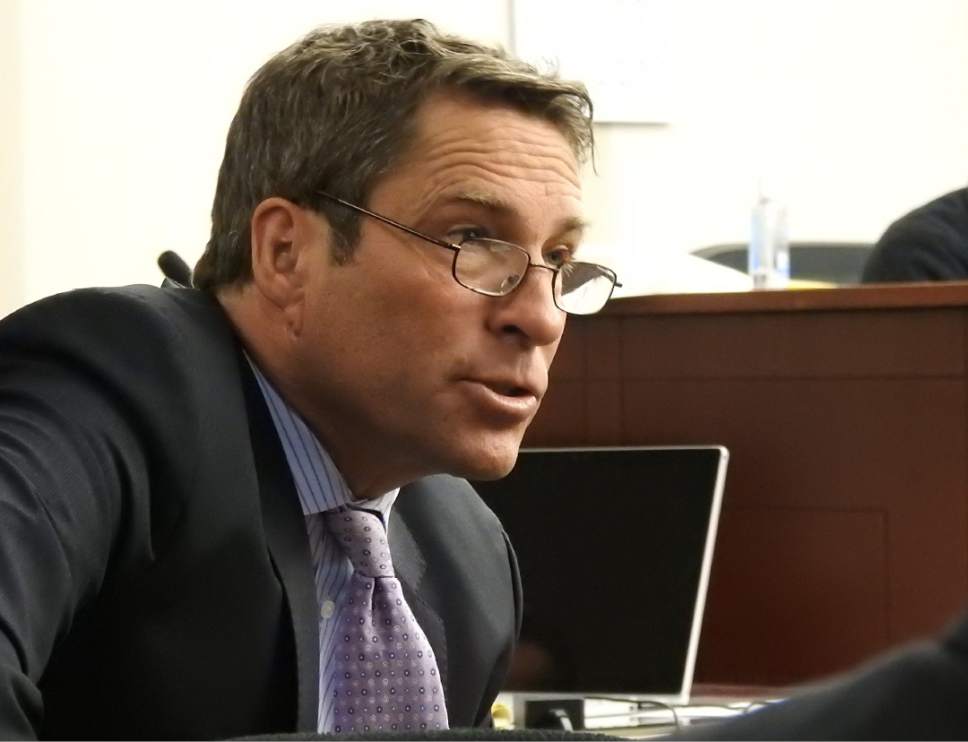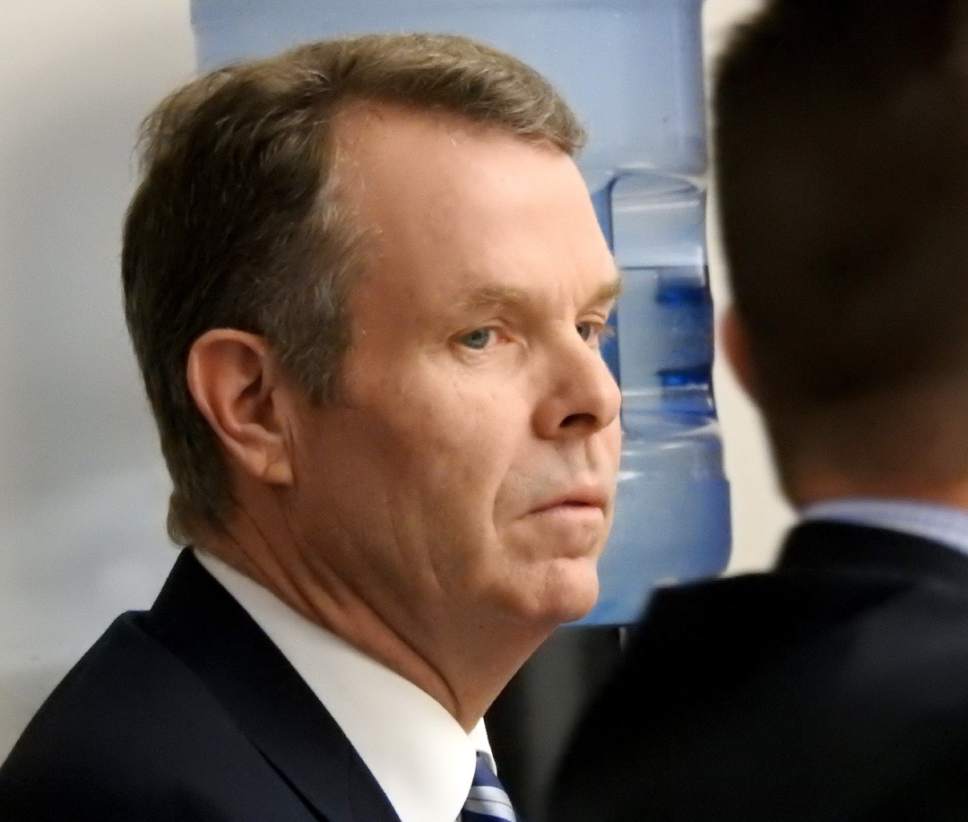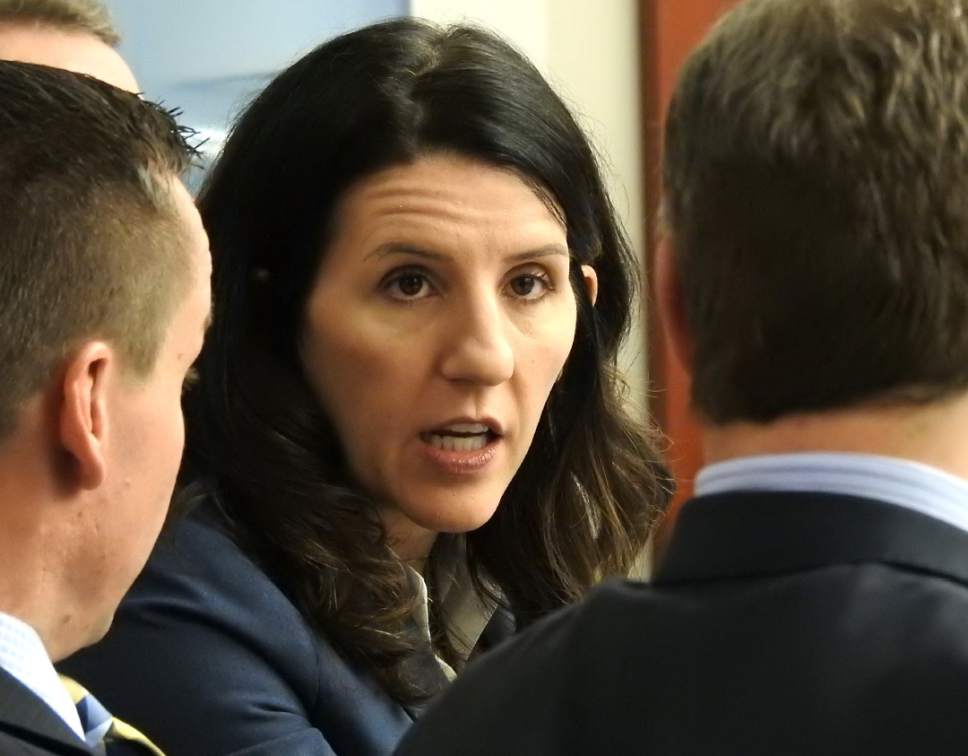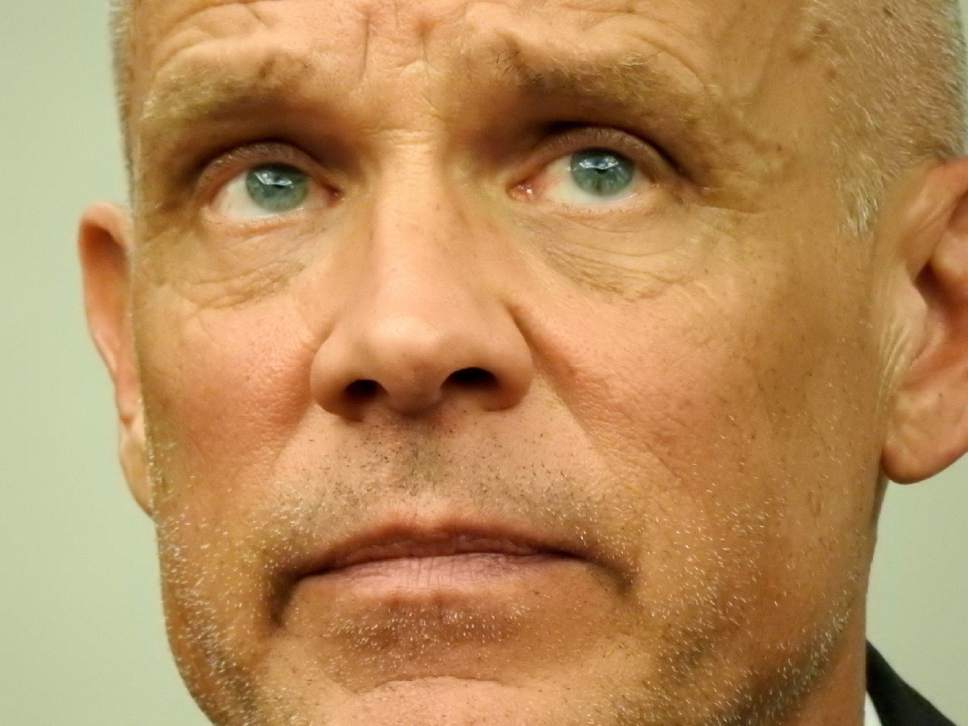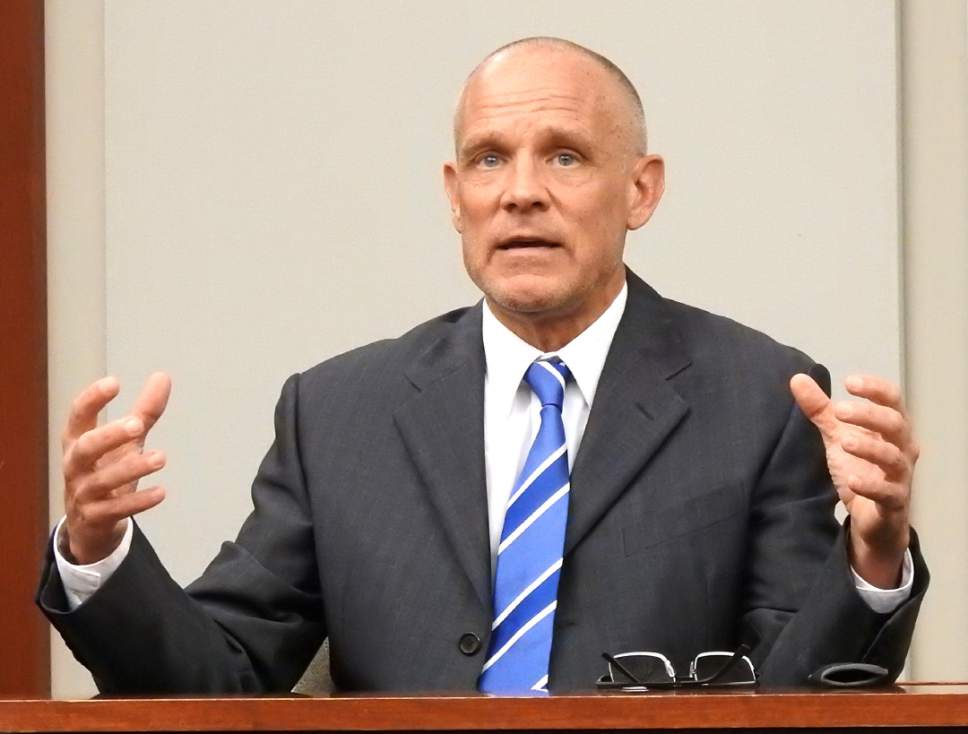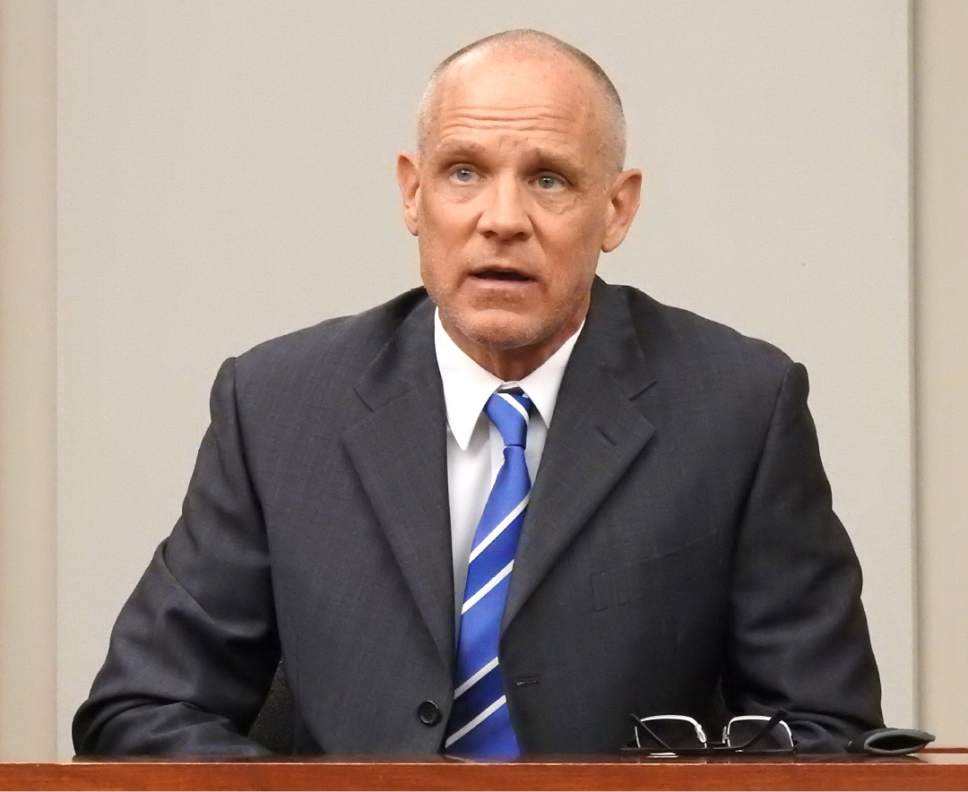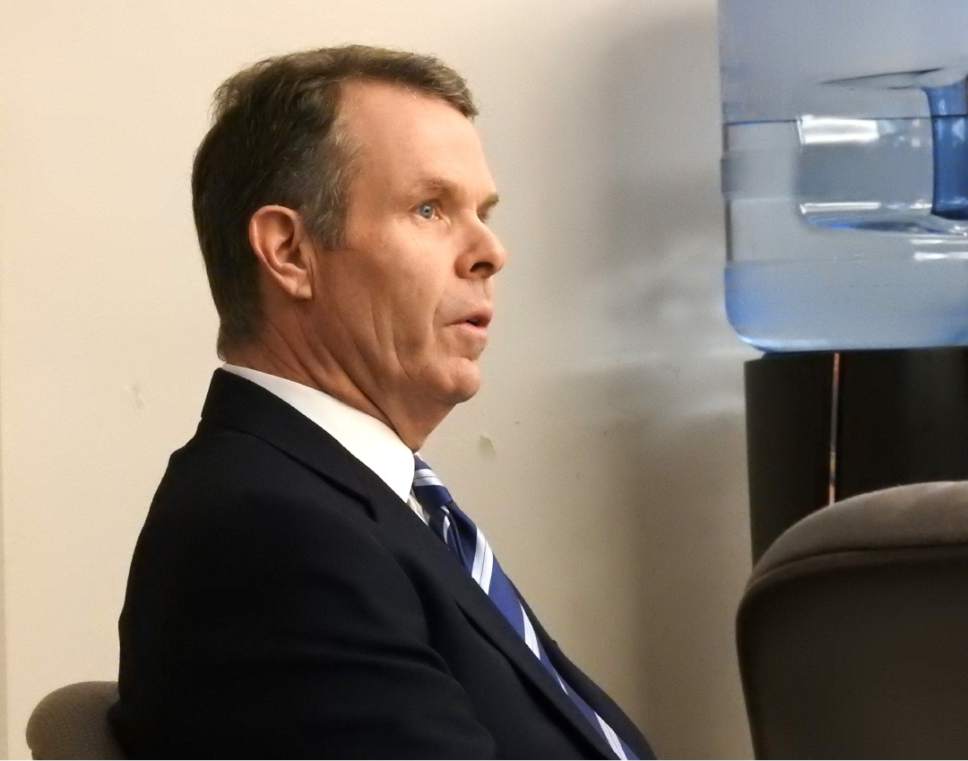This is an archived article that was published on sltrib.com in 2017, and information in the article may be outdated. It is provided only for personal research purposes and may not be reprinted.
As the jury trial of embattled former Utah Attorney General John Swallow resumed Thursday, key accuser Marc Sessions Jenson took the witness stand for a second day.
Jenson, the prosecution's first witness, testified Wednesday about trips in 2009 that Swallow and his immediate predecessor, three-term Attorney General Mark Shurtleff, made to a ritzy Southern California resort, where they allegedly coerced Jenson into footing the bill, and shook him down for cash and other favors.
Swallow has pleaded not guilty to 13 felony and misdemeanor charges, stemming from allegations of fostering a pay-to-play climate inside the attorney general's office.
The latest from Day 3 of the trial:
3:50 p.m.
Under cross-examination, Marc Sessions Jenson acknowledged holding at least $30 million in assets at the time he owed $4.1 million in restitution in his 2005 criminal case.
"That would be just the beginning," Jenson told the jury.
Jenson said the assets were divided between a $22 million art collection, a $400,000 watch collection and about $8 million worth of equity in four houses — three in Utah, one in Sun Valley, Idaho.
"The state of Utah knew," Jenson said.
Williams then asked why he didn't just pay the restitution that he owed.
Jenson said it wasn't that simple; there was no ready cash, and liens on the assets made them inaccessible.
—
2 p.m.
Afternoon testimony was delayed a bit after prosecutors raised concerns about live Twitter feeds coming out of the courtroom, specifically those from The Salt Lake Tribune.
Deputy Salt Lake County District Attorney Fred Burmester told the court he feared witnesses following the feeds could be tainted by the reporting. A specific concern was raised about retweets, and commentary from Mark Shurtleff, who could be called as a defense witness.
After a discussion, 3rd District Judge Elizabeth Hruby-Mills reminded attorneys that during a Feb. 1 hearing, she admonished both sides to tell their witnesses to avoid Twitter and any other media reports.
A Tribune reporter live-tweeted the Twitter-taint discussion.
Burmester told The Tribune his intention in raising the issue was not to shut down reporters.
"I believe in the First Amendment," he said.
—
12:50 p.m.
A defense attorney tried to put Jenson on the hot seat Thursday, picking apart testimony from the state's key witnesses in a contentious exchange.
Scott C. Williams asked Jenson to read through a stream of more than 200 text messages between the once-imprisoned money-lender and Shurtleff from 2007.
The messages discuss a possible meeting between Shurtleff and Jenson at which the businessman hoped to persuade the then-attorney general to walk away from his ongoing criminal prosecution of Jenson.
"I believe we have much in common and will become fast friends," Jenson wrote, according to the document.
During the past two days, Jenson testified that meeting was set up through the late Tim Lawson, Shurtleff's so-called "fixer." He also told the jury that his lawyers objected to a meeting, saying that was their job.
But Williams said that, in fact, they didn't object: " … fine with me … " the lawyer said, reading from a text between Shurtleff and Jenson's attorney Greg Skordas.
The timing of the emails also doesn't track with Jenson's testimony, Williams said, because they are before Lawson is said to have arrived on the scene to help Jenson fix his legal troubles.
On the stand, Jenson offered to explain, but was cut off.
"I don't need that," Williams said. "It's all here in black and white."
11:15 a.m.
Testifying about how he ended up in trouble over the $4 million restitution payments, Jenson maintains he thought he was OK, because he had paid businessman Mark Robbins, as he was told to by Shurtleff.
Jenson said he was expecting Shurtleff, Lawson or Swallow to go to court and say he had fulfilled the restitution.
Then, in 2011, the attorney general's office brought criminal charges against Jenson and his brother related to a failed Mount Holly resort development in Beaver County.
In 2015, Jenson was acquitted in the Mount Holly case and paroled from prison in his 2005 securities-fraud case.
But Jenson says he spent 50 months in prison for nonpayment of the $4.1 million in restitution in the securities case.
With interest, Jenson says, he now owes $5 million. Because he can't get a job, he's paying a nominal amount every month.
Jenson's cross-examination by Swallow's defense team is next.
—
10:15 a.m.
Marc Sessions Jenson says he paid tens of thousands in expenses for Shurtleff, Swallow, the late Tim Lawson and others for their trips to the oceanside Pelican Hill resort.
Receipts from the 2009 trips were shown to the jury during testimony both Wednesday and Thursday. They include room charges for everything from $5 onion rings to an $84 12-pack of diet Coke, and $240 in souvenirs from the resort golf shop. Overnight stays in the villas at the resort cost roughly $800, although sometimes the rate was higher, Jenson testified Thursday.
Jenson said he was also paying — at Shurtleff's direction — the bills for Utah businessman Mark Robbins, who lived at the resort from early 2009 through September.
Jenson said expenses were also covered for other guests, including several $228 massages for Swallow's wife, Suzanne, when the couple spent their wedding anniversary at the resort, and a group of "mystery men," with ties to the Utah Transit Authority, who showed up for a secret meeting in early June.
"I believe I paid for everybody and everything that happened at Pelican Hill," Jenson said.
—
10:05 a.m.
Jenson testified that Mark Shurtleff, fearing that then-U.S. Attorney for Utah Brett Tolman might be building a case against him, asked Jenson for help, because Tolman's cousin, Paul Nelson, worked for Jenson.
Shurtleff promised Jenson that helping him strike a truce with Tolman would resolve Jenson's 2005 securities fraud case and restitution.
Jenson said that after the "Tolman" meeting with Shurtleff, Swallow told him not to give Shurtleff all his money, saying: "Save some for me."
Jenson said he later got text from Shurtleff that said: "I met with Tolman. It's over. You're great. You're done."
Taking that to mean his own case was resolved, Jenson talked to Shurtleff's "fixer," Tim Lawson, hoping to stop threats and payments. Lawson said to wait for end of Jenson's 36-month probation.
Jenson said he, nevertheless, slowed down payments to Lawson.
—
9:05 a.m.
On the stand for a second day, Marc Sessions Jenson, a once-imprisoned businessman, told a jury that former Utah Attorneys General Mark Shurtleff and John Swallow brought a mystery man along on a June 2009 visit to the Southern California luxury resort Pelican Hill.
Jenson said he asked about the man's identity, but was told by Shurtleff: "Don't worry about it; he's with me."
The man wasn't the only guest, Jenson said. A second man was identified by Tim Lawson as Utah Transit Authority attorney Bruce Jones.
Lawson also said the two guests — and others — were at the resort for a secret meeting and that Jenson should make himself scarce.
"He said, 'Today you get to stay in your villa, or you get to leave the premises,' " Jenson said.


